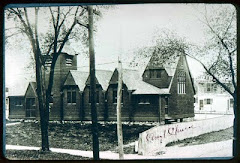When I served at Brooke Army Medical Center in San Antonio, I had a clunker of a car. I got to know my mechanic well, and one day he asked me about my ministry. I explained that I was a Clinical Resident Chaplain and spent a good deal of time on various wards. He looked at me with a pained expression. "I could never do hospital work; I care too deeply about the pain of people; it would hurt too much to see them suffer." I smiled and said, "The challenge for the medical staff is that occasionally a few act like they've got your job." We can treat people as problems, or as individuals with unique needs and hurts.
The way to help people is not to be dispassionate, nor to be empassioned, but to show compassion. The English word compassion is derived from a combination of two Latin words, com and pati, which together mean "to bear with" or "to suffer with" This means caring about people's pain--but with a plan to help them through it. Just having the right words to say isn't enough. We need to spend time with those who hurt; compassion is often a non-verbal ministry. Just being with them can be just what the doctor ordered.
Henri Nouwen claims that, "We learn compassion through the life of Christ, who clasps Himself to us in our moments of greatest pain and who is our companion in suffering." As we identify with our Savior's woundedness, we become, in Nouwen's words, "wounded healers."
A La Carte (January 27)
13 hours ago







No comments:
Post a Comment